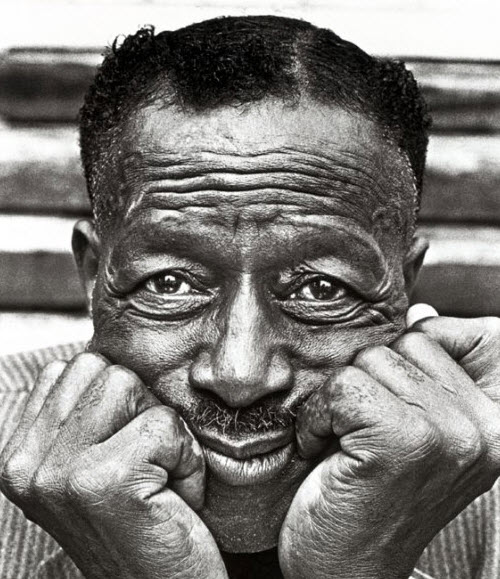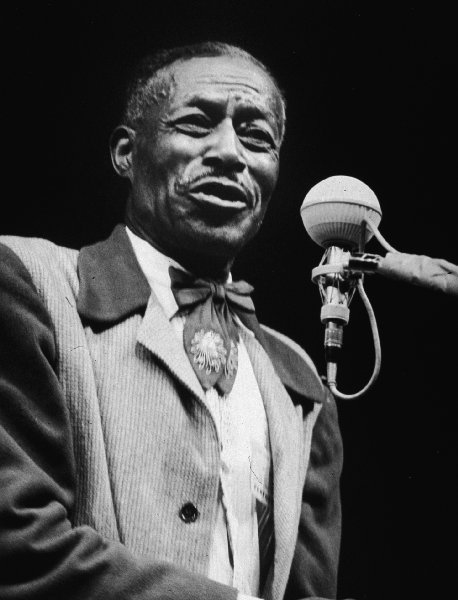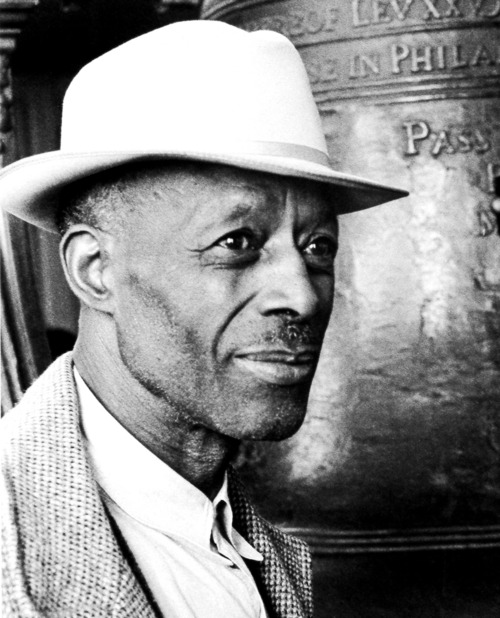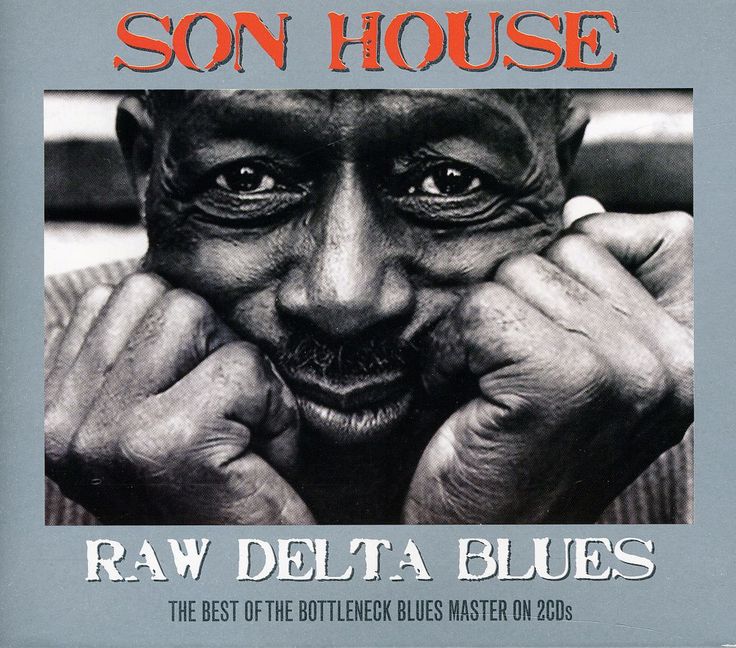March 21: The Late Son House was (probably) born in 1902
“Of course that was my idol, Son House. I think he did a lot for the Mississippi slide down there.”
~Muddy Waters
“People keep asking me where the blues started and all I can say is that when I was a boy we always was singing in the fields. Not real singing, you know, just hollerin’, but we made up our songs about things that was happening to us at the time, and I think that’s where the blues started.”
~Son House (1965)
Death Letter Blues:
From Wikipedia:
| Birth name | Edward James House, Jr. |
|---|---|
| Born | March 21, 1902 (?) Riverton, Mississippi, United States |
| Died | October 19, 1988 (aged 86) Detroit, Michigan, United States |
| Genres | Delta blues, country blues,gospel blues |
| Instruments | Guitar |
| Years active | 1930–1974 |
Eddie James “Son” House, Jr. (March 21, 1902 (?) – October 19, 1988) was an American blues singer and guitarist. House pioneered an innovative style featuring strong, repetitive rhythms, often played with the aid of slide guitar, and his singing often incorporated elements of southern gospel and spiritual music.
House did not learn guitar until he was in his early twenties, as he had been “churchified”, and was determined to become a Baptist preacher. He associated himself with Delta blues musicians Charlie Patton and Willie Brown, often acting as a sideman.
In 1930, House made his first recordings for Paramount Records during a session for Charlie Patton. However, these did not sell well due to the Great Depression, and he drifted into obscurity.
He was recorded by John and Alan Lomax for the Library of Congress in 1941 and ’42.
Afterwards, he moved north to Rochester, New York, where he remained until his rediscovery in 1964, spurred by the American folk blues revival. Over the next few years, House recorded several studio albums and went on various tours until his death in 1988.
His influence has extended over a wide area of musicians, including Robert Johnson, John Hammond, Alan Wilson (of Canned Heat), Bonnie Raitt, The White Stripes, and John Mooney.
Grinnin’ in Your Face:
| Cub Koda: Son House’s place, not only in the history of Delta blues, but in the overall history of the music, is a very high one indeed. He was a major innovator of the Delta style, along with his playing partners Charley Patton and Willie Brown. Few listening experiences in the blues are as intense as hearing one of Son House’s original 1930s recordings for the Paramount label. Entombed in a hailstorm of surface noise and scratches, one can still be awestruck by the emotional fervor House puts into his singing and slide playing. Little wonder then that the man became more than just an influence on some white English kid with a big amp; he was the main source of inspiration to both Muddy Waters and Robert Johnson, and it doesn’t get much more pivotal than that. Even after his rediscovery in the mid-’60s, House was such a potent musical force that what would have been a normally genteel performance by any other bluesmen in a “folk” setting turned into a night in the nastiest juke joint you could imagine, scaring the daylights out of young white enthusiasts expecting something far more prosaic and comfortable. Not out of Son House, no sir. When the man hit the downbeat on his National steel-bodied guitar and you saw his eyes disappear into the back of his head, you knew you were going to hear some blues. And when he wasn’t shouting the blues, he was singing spirituals, a cappella. Right up to the end, no bluesman was torn between the sacred and the profane more than Son House. … read more over @ allmusic.com |
Downhearted Blues:
Album of the day
Raw Delta Blues (2012)
Other March 21
- Solomon Burke (March 21, 1940 – October 10, 2010) was an American recording artist and vocalist, who shaped the sound ofrhythm and blues as one of the founding fathers of soul music in the 1960s and a “key transitional figure in the development of soul music from rhythm and blues. He had a string of hits including “Cry to Me”, “If You Need Me”, “Got to Get You Off My Mind”, “Down in the Valley” and “Everybody Needs Somebody to Love”. Burke was referred to as “King Solomon”, the “King of Rock ‘n’ Soul”, “Bishop of Soul” and the “Muhammad Ali of soul”. Due to Burke’s minimal chart success in comparison to other soul music greats such as James Brown, Wilson Pickett and Otis Redding, Burke is often described as the genre’s “most unfairly overlooked singer” of its golden age. Atlantic Records executive Jerry Wexler once referred to Burke as “the greatest male soul singer of all time”.

- Surfer Rosa is the first full-length album by the American alternative rock band Pixies, released in March 1988 on the British independent record label 4AD. The album’s unusual and offbeat subject matter includes references to mutilation and voyeurism; this is augmented by experimental recording, low-fidelity production and a distinctive drum sound. Surfer Rosa contains many of the elements present in Pixies’ earlier output, including Spanish lyrics and references to Puerto Rico.

Released March 21, 1988 Recorded December 1987 at Q-Division in Boston, Massachusetts
Genre Alternative rock Length 32:50 Label 4AD Producer Steve Albini - Otis Spann (March 21, 1930 – April 24, 1970) was an American blues musician whom many consider to be the leading postwarChicago blues pianist.
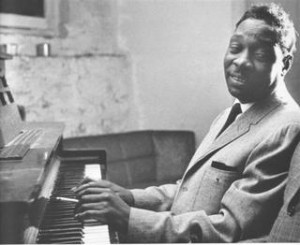
– Egil & Hallgeir

